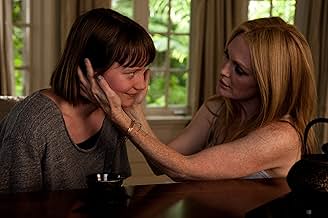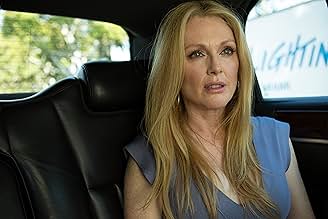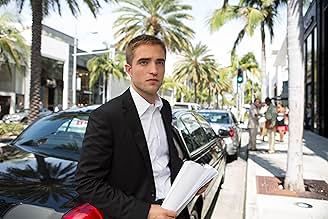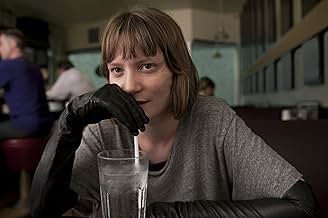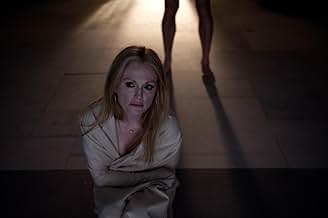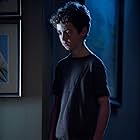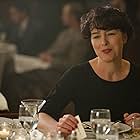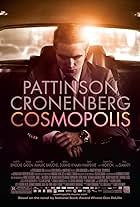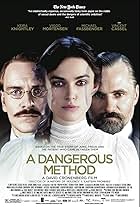A tour into the heart of a Hollywood family chasing celebrity, one another and the relentless ghosts of their pasts.A tour into the heart of a Hollywood family chasing celebrity, one another and the relentless ghosts of their pasts.A tour into the heart of a Hollywood family chasing celebrity, one another and the relentless ghosts of their pasts.
- Awards
- 10 wins & 24 nominations
- Director
- Writer
- All cast & crew
- Production, box office & more at IMDbPro
Storyline
Did you know
- TriviaAccording to screenwriter Bruce Wagner, the casting of Robert Pattinson was what finally got the movie made, financially speaking.
- GoofsWhen Jerome is driving Havana, they are in a long wheelbase 'L' version of Lincoln Town Car, when they've arrived at her house and are having sex in the back, they are in a standard wheelbase version (it has a shorter quarter glass section in the rear door window).
- Quotes
Agatha Weiss: [Agatha recites poetry from Paul Éluard's poem, Liberty, translated from French] On my school notebook, on my desk and the trees, on the sand and the snow, I write your name. On all the flesh that says yes, on the forehead of my friends, on every hand held out, I write your name. Liberty.
- ConnectionsFeatured in Renegade Cut: Maps to the Stars (2015)
- SoundtracksNa Na Hey Hey Kiss Him Goodbye
Written by Gary DeCarlo,Paul Leka and Dale Frashuer
Performed by Julianne Moore and Mia Wasikowska
Featured review
A film worth revisiting, if my experience is anything to go by. I didn't think it was up to much the first time, but the BBC put it on again and this time I watched it twice and probably will at least once more, partly for Julianne Moore, who's pretty astonishing, playing an almost unprecedentedly monstrous grotesque, and partly for the frequent patches of brilliantly written dialogue (take a bow, Bruce Wagner). Moore's dialogue is almost always good, but that of 13-year-old move star and recovering drug abuser Benji also packs a vicious punch, and elsewhere, more subtly, in the mouths of Mia Wasikovska and Robert Pattinson's characters, Wagner does probably the best depiction I've ever seen of how young adults actually talk a lot of the time: confused, insecure and just barely covering it up.
All this is something like what we might see - and most importantly hear - if anyone ever filmed a Brett Eason Ellis novel properly, without being afraid of going to town on the dialogue (why hasn't Cronenburg ever worked with Ellis?). As such, it's an interesting point of comparison with Cronenburg's previous film, Cosmopolis, also heavy on the chilly, anomic modern rich person dialogue, courtesy of Don de Lillo, which, taken on its own, looks like woefully pretentious proof that you can't do this in film. Turns out you can, with bells on, though actually, Cronenburg films have been demonstrating this at least since Dead Ringers.
Other than these talky highlights, I think this film has a few problems of its own, some of them maybe also around pretentiousness. The big one for me is just the messiness of the message and plot, as a unity, which it isn't really. Moore's storyline on its own is a perfect, pitilessly poisonous Hollywood satire. Does it really need, in addition, a parallel plot that never quite meshes about incest and schizophrenia? Why? To round it out to feature film length? To give it some spurious intellectual heft in the form of references to Greek tragedy and elemental symbolism?
To be honest, there may be a puzzle here that I haven't worked out, because quite a lot of that dialogue I like so much seems to be satirising precisely such tendencies, particularly when Moore's character ghoulishly invokes fire and water to implicitly celebrate the death of a child because it gets her a part. And that's another reason I might watch again. But still, the problem remains, I don't think you need the incest or the schizophrenia to satirise Hollywood, because it introduces a sort of separate issue, a distinct emotional antagonist if you will, where Hollywood itself seems like the real target and should surely be all you need to explain all this very bad behaviour.
All this is something like what we might see - and most importantly hear - if anyone ever filmed a Brett Eason Ellis novel properly, without being afraid of going to town on the dialogue (why hasn't Cronenburg ever worked with Ellis?). As such, it's an interesting point of comparison with Cronenburg's previous film, Cosmopolis, also heavy on the chilly, anomic modern rich person dialogue, courtesy of Don de Lillo, which, taken on its own, looks like woefully pretentious proof that you can't do this in film. Turns out you can, with bells on, though actually, Cronenburg films have been demonstrating this at least since Dead Ringers.
Other than these talky highlights, I think this film has a few problems of its own, some of them maybe also around pretentiousness. The big one for me is just the messiness of the message and plot, as a unity, which it isn't really. Moore's storyline on its own is a perfect, pitilessly poisonous Hollywood satire. Does it really need, in addition, a parallel plot that never quite meshes about incest and schizophrenia? Why? To round it out to feature film length? To give it some spurious intellectual heft in the form of references to Greek tragedy and elemental symbolism?
To be honest, there may be a puzzle here that I haven't worked out, because quite a lot of that dialogue I like so much seems to be satirising precisely such tendencies, particularly when Moore's character ghoulishly invokes fire and water to implicitly celebrate the death of a child because it gets her a part. And that's another reason I might watch again. But still, the problem remains, I don't think you need the incest or the schizophrenia to satirise Hollywood, because it introduces a sort of separate issue, a distinct emotional antagonist if you will, where Hollywood itself seems like the real target and should surely be all you need to explain all this very bad behaviour.
- johnpmoseley
- Dec 25, 2019
- Permalink
- How long is Maps to the Stars?Powered by Alexa
Details
- Release date
- Countries of origin
- Official site
- Language
- Also known as
- Bailey's Quest
- Filming locations
- Production companies
- See more company credits at IMDbPro
Box office
- Budget
- $15,000,000 (estimated)
- Gross US & Canada
- $350,741
- Opening weekend US & Canada
- $143,422
- Mar 1, 2015
- Gross worldwide
- $4,510,934
- Runtime1 hour 51 minutes
- Color
- Sound mix
- Aspect ratio
- 1.85 : 1
Contribute to this page
Suggest an edit or add missing content











